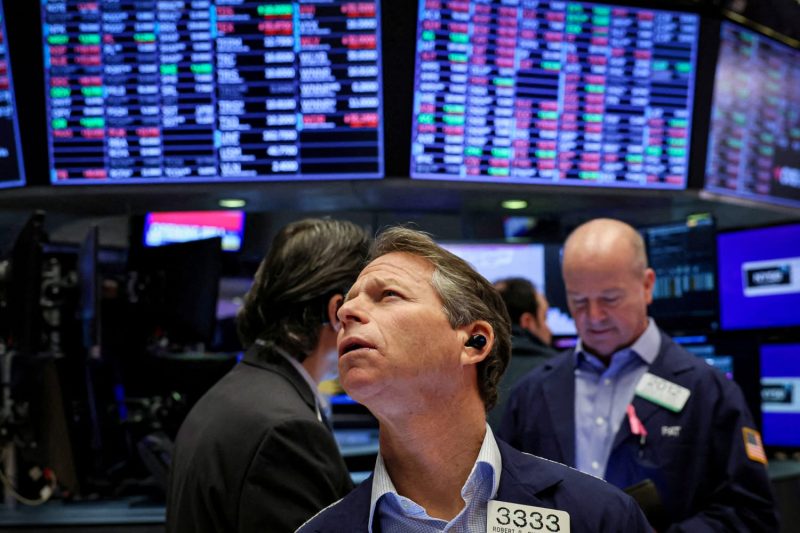The Impact of Inflation on the Stock Market: Analyzing the Inflation-Freakout Nexus
In recent times, there has been a growing concern about the potential impacts of inflation on the stock market. As inflationary pressures continue to rise, investors are becoming increasingly anxious about the potential effects on their portfolios. However, it is essential not to succumb to panic and knee-jerk reactions based on inflation fears alone. In this article, we delve into the relationship between inflation and the stock market, enlightening readers on how they can navigate this complex landscape with confidence.
Understanding Inflation and Its Causes
To comprehend the link between inflation and the stock market, it is crucial to understand precisely what inflation is and the factors driving it. Inflation can be described as the sustained increase in the average price level of goods and services over time. It erodes the purchasing power of money, leading to a decrease in the real value of wealth.
Various factors contribute to inflationary pressures, including increasing demand, rising production costs, global supply chain disruptions, and government fiscal policies. The post-pandemic recovery and stimulus measures implemented by central banks worldwide have amplified concerns about inflation, prompting investors to scrutinize the potential impact on the stock market.
Impact of Inflation on Stocks: A Historical Perspective
Historical data reveals a mixed picture regarding the relationship between inflation and the stock market. While high inflation rates can trigger a selloff, leading to declines in stock prices, moderate inflation levels have often coincided with positive stock market performance.
During periods of high inflation, companies may experience rising costs of production, dampened consumer demand, and reduced corporate profits. This can exert downward pressure on stock prices, potentially creating an environment of uncertainty and volatility.
However, it is crucial to note that not all industries are affected by inflation in the same way. Defensive sectors such as utilities, healthcare, and consumer staples tend to fare better during inflationary periods since they offer essential goods and services that exhibit relatively stable demand. Cyclical sectors, on the other hand, may experience more significant disruptions as rising input costs impact their profitability.
Inflation-Resistant Investments
While inflation can have adverse effects on stock prices, there are specific investment strategies that can help investors protect their portfolios during periods of inflation. One approach is to consider allocating a portion of the portfolio to assets that historically exhibit a positive correlation with inflation.
Hard assets like gold, commodities, and real estate have often served as effective inflation hedges. These assets have intrinsic value and tend to increase in price as inflation erodes the value of currencies. Additionally, considering dividend-paying stocks with a history of consistently raising dividends can provide a measure of protection against inflation.
Moreover, investors may consider diversifying their portfolios globally to include companies in economies that historically demonstrate resilience during times of inflation. This diversification can help mitigate the effects of inflationary forces on one particular market or currency.
Taking a Long-Term View
It is crucial for investors to maintain a long-term perspective when evaluating the impact of inflation on their portfolios. Historically, the stock market’s ability to generate real returns over the long haul has remained intact despite various economic conditions, including inflationary periods.
While inflation can introduce short-term turbulence, it is important not to make knee-jerk reactions based solely on the fear of rising prices. Maintaining a diversified portfolio, periodically rebalancing investments, and seeking professional financial advice can help investors navigate the potential challenges that inflation may bring.
Conclusion
The relationship between inflation and the stock market is undoubtedly complex and multi-faceted. While inflation can introduce short-term volatility and uncertainty, a well-diversified portfolio and a long-term focus are crucial to mitigate potential risks and capitalize on opportunities.
Investors should resist the urge to panic and make impulsive decisions based solely on inflation fears. By understanding the historical relationship between inflation and the stock market, diversifying investments, and considering inflation-resistant assets, investors can navigate this relationship with confidence, ensuring the long-term growth and preservation of their portfolios.
